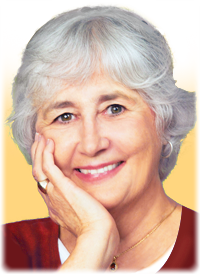Interview with Catherine Ann Jones
Q. In your popular workshop, The Way of Story (an approach to writing for the Soul—and the Craft to back it up!), you state, “the healing transformation of good writing depends on making it one’s own from within.” What is your workshop about?
A. Exercises and techniques are explored which are applicable to writers of all levels and for all genres, including plays, screenplays, novels, and true-life stories. The focus is on developing story structure to integrate memorable characters, dialogue (not conversation), and theme into a coherent, emotionally consistent and marketable story. The Way of Story workshops provide a safe place and supportive group experience which serves as a catalyst, allowing the deepest self-expression in writing.
Q. Please tell us more about this concept and how you came to it.
A. Once upon a time and long, long ago, as a then-New York playwright, I was receiving my “fifteen minutes of fame,” as Andy Warhol used to say, when my first play, VIRGINIA(later re-titled ON THE EDGE), received several awards including the National Endowment of the Arts Award and was directed by the legendary Harold Clurman. When asked to lecture at Skidmore on any topic, I chose “Art as Process, Not Product” and warned how the commercialism of focusing on product had harmed American culture. I spoke of how the artist must see his life and work as a journey and a process rather than merely a consumer product. Now, twenty years later, I still believe this, for risk and change matter tremendously–to art as well as for the individuation of the personal life.
Q. Can you give us a brief overview of your life of change, and some of the lessons learned?
A. I have chosen the way of risk. Even long ago, it seemed better to opt for the way of being true to one’s self, even though what seems right one day may change—and usually does. Life is a package deal; one cannot order Life and ask that the hard portions be left out, please. One must be one’s self, heedless of the world’s response. And success can be every bit as dangerous as failure. Perhaps more so.
After seeing several of my plays produced and garnering awards, I was surprised at the emptiness I was experiencing. I had become a professional writer and had, somewhere along the line, lost the joy of it—presumably the reason one begins writing in the first place.
Q. I see. That’s a vital realization for any creative person.
A. Some believe that, life after life, the soul chooses what it needs on its
continuous journey towards some final realization. If this is so, the outer details of our lives may be less important than the inner evolution of the Self. So much for an impressive resume!
My life, like many, has been full of changes. Daughter, wife, mother, ex-wife, actress, teacher, playwright, screenwriter, producer, community activist, friend, seeker — we are many things to many people. I sometimes think of the various hats we wear as images on a cinema screen. Costumes and stories–even the players are forever changing, yet the background remains the same. The screen is not the stories projected upon it any more than we are what we do. It is the screen or rather the Self that interests me more and more.
What is important, I think, is to trust the process of inner journey. This experience led to the birth of the writing workshops I now offer, that is, The Way of Story.
Q. You have been rather outspoken about socially responsible films.
A. Yes. I am very committed to socially responsible films, that is, stories without gratuitous violence. Hollywood states that media only reflects the outer world, but it is evident that sometimes the outer world mirrors media, as well. If this is so, those of us working in Hollywood should be more responsible, both individually and collectively.
– Screentalk magazine April 2003
See Can Movies Make A Difference? article
 The Way of Story
The Way of Story